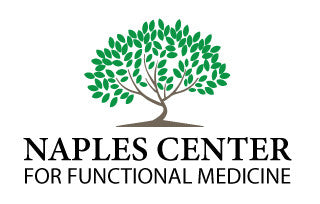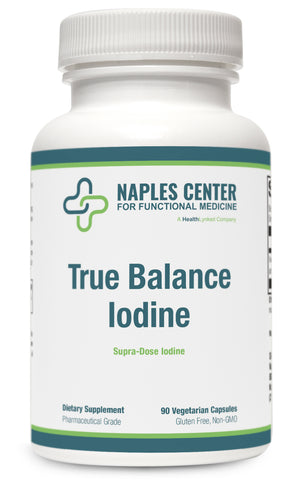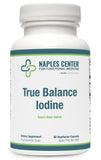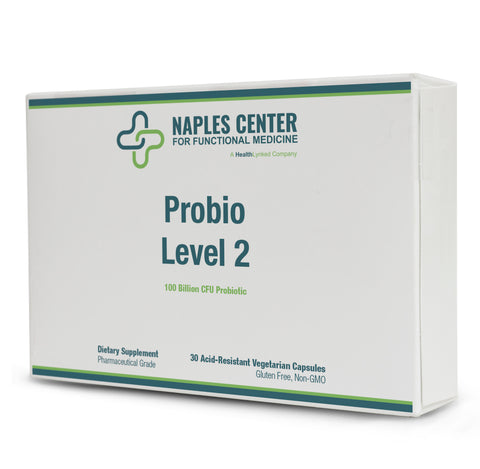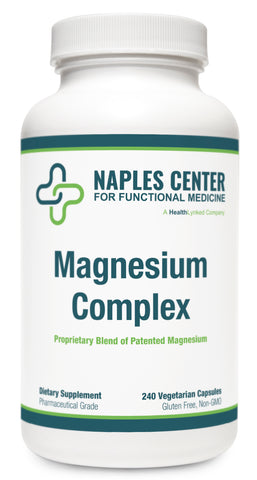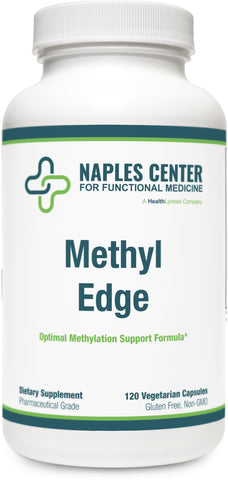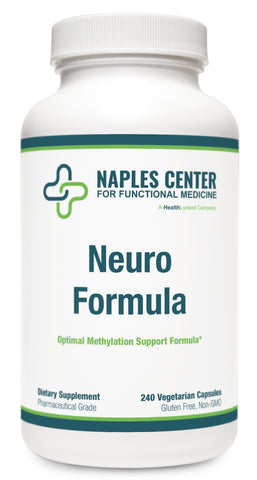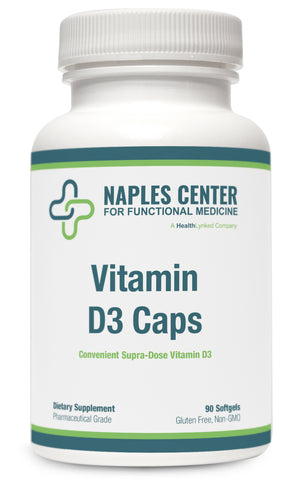True Balance Iodine
True Balance Iodine
Supra-Dose Iodine
True Balance Iodine is a superior iodine formulation created to enhance thyroid support and offer long-term, consistent results. True Balance Iodine contains the ideal balance of potassium iodide and molecular iodine (I2).*
Disclaimer
Directions
Take one capsule daily, or as directed by your healthcare practitioner.
Consult your healthcare practitioner prior to use. Individuals taking medication should discuss potential interactions with their healthcare practitioner. Do not use if tamper seal is damaged.
Does Not Contain
Wheat, gluten, yeast, corn, soy, animal or dairy products, fish, shellfish, peanuts, tree nuts, egg, ingredients derived from genetically modified organisms (GMOs), artificial colors, artificial sweeteners, or artificial preservatives.
Storage
Keep closed in a cool, dry place out of reach of children.
Other Ingredients
Microcrystalline cellulose, HPMC (capsule), silica, magnesium stearate, and sodium copper chlorophyllin.
Applications
- Supports a Healthy Synthesis of Thyroid Hormones*
- Helps Maintain Healthy Breast Tissue*
Disclaimer
Discussion
Iodine is an essential trace element, recognized for its traditional role in thyroid hormone synthesis. Iodine is directly incorporated into thyroxine (T4) and the biologically active form of the thyroid hormone triiodothyronine (T3). Thyroid hormones regulate metabolism and energy production throughout the body and, in turn, affect core body temperature, growth, reproduction, protein synthesis (including the formation of hair and skin), and neuromuscular function.*[1,2]
In addition to its well-known role in thyroid health, iodine has antioxidant activity, and it plays a critical role in intellectual development, endocrine function, and breast and reproductive system health.[2-8] Approximately 15-20 mg of iodine is concentrated in the thyroid and thyroid hormones, while 70% of the body’s iodine is distributed in other tissues, including the mammary glands, ovaries, eyes, gastric mucosa, cervix, and salivary glands.*[3,8,9]
Sources of Iodine Iodine must be obtained from the diet or in supplement form. Iodine intake through seaweed consumption, such as in Japanese populations, is naturally higher than in other populations. Current estimates put Japanese daily intake of iodine from seaweed at 1-3 mg/d[10]; but previous estimates have been much higher, such as 5.3-13.8 mg/d, and even as high as 50-80 mg/d.[2,3] In other regions, the iodine content of food is dependent upon the presence and availability of iodine in the soil in which food is grown. In many countries, table salt and cattle feed have been fortified with iodine to help consumers meet minimum intake requirements. For instance, universal salt iodization was instituted to reduce the prevalence of goiter.[11] It is interesting to note that over the last 25 years, the consumption of (iodized) table salt by US citizens has decreased by 65% as a result of people trying to reduce their sodium intake for health reasons.*[2]
Iodine sufficiency is a controversial topic. The US RDI for iodine is 150 mcg/d for adults, which governing bodies consider to be adequate. The tolerable upper limit is set at 1 mg/d. Among functional medicine practitioners, there is no consensus on the actual human requirement for iodine sufficiency. Some believe that individual iodine requirements hinge upon the exposure to or consumption of goitrogens—substances in food or the environment that interfere with iodine utilization or thyroid hormone production. Examples of goitrogens include toxic halides (fluoride and bromide), organochlorides, perchlorates, cabbage, Brussels sprouts, soybean isoflavones, and several other foods.*[1] According to some iodine experts, the requirement of the whole human body for iodine is about 14 mg/d or more (6 mg/d needed for the thyroid gland, the rest for extra-thyroidal tissues).[12] Although there is not a consensus, many experts agree that the focus of sufficiency cannot reside solely with the thyroid, but rather it must address whole body sufficiency.*[2] Doses ranging from 3 mg/d up to 50 mg/d have been used successfully in clinical practice.[2,11,13] It is postulated that intakes that reflect those of seaweed-consuming Japanese would come closer to meeting whole body sufficiency. Furthermore, it is a little-known fact that under certain circumstances, high doses of potassium iodide (up to 130 mg) can be used to saturate the thyroid and protect it in the event of a nuclear accident.*[14]
Next to the thyroid gland, the breasts and ovaries concentrate the most iodine.[3,9] The relationship between breast health and iodine levels has been reported on for decades, and it has been proposed that inadequate iodine prohibits normal breast architecture to develop.[11] Moderately high doses of supplemental iodine have been used to promote breast comfort after animal and human studies suggested that such a protocol would have positive effects. A randomized, double-blind, placebo-controlled, multicenter clinical trial (N = 111) investigated the effect of supraphysiologic doses of iodine on breast health in women with normal thyroid function. The 3 and 6 mg/d doses resulted in significant improvement in breast comfort.[5] According to Ghent et al, certain breast tissue “reacts differently to sodium iodide, protein-bound iodide and molecular iodine. Molecular iodine is nonthyrotropic and was the most beneficial.”[4] It is important to note that individuals with a history of autoimmune thyroid pathologies were excluded from the study.*
Supplemental iodine has been found to be safe and well-tolerated in the inorganic, non-radioactive iodine/iodide form.[12] True Balance Iodine reflects the forms and ratios of iodine found in Lugol’s solution—a liquid combination of molecular iodine and potassium iodide that has been safely and effectively employed since 1829.[3,15,16] True Balance Iodine provides 12.5 mg of iodine per capsule, with a breakdown of 5 mg of molecular iodine and 7.5 mg of potassium iodide. The provision of 12.5 mg of iodine per capsule allows healthcare practitioners to easily titrate iodine dosage as required. Due to the “high-potency” dose of iodine in True Balance Iodine, individuals should consult their healthcare practitioner prior to use regarding any medical conditions, including thyroid conditions, and any possible interactions with medications. High doses should be monitored by a knowledgeable healthcare professional.* Testing is an important aspect of supra-dose iodine supplementation and should guide the use of iodine in mg doses. Experts use spot/urine testing and load testing with subsequent (24/h) urine analysis to help determine iodine need and sufficiency.*
We Also Recommend
